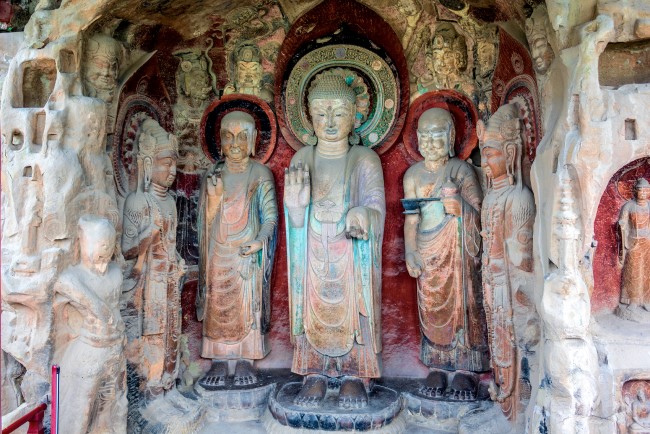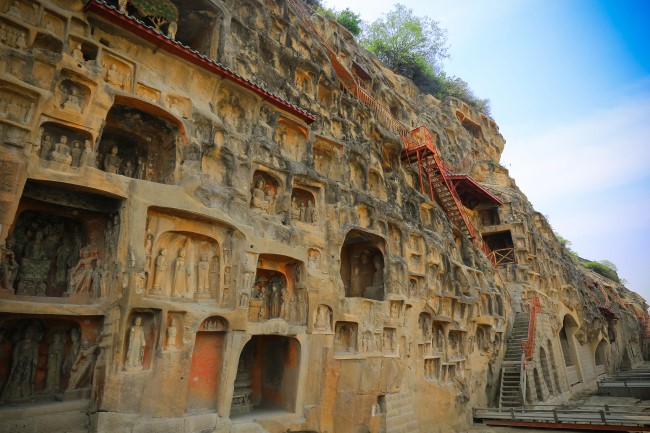Documentary offers window into treasured grotto art in Guangyuan
A seminar was held on June 13 in Beijing to explore the academic value and social influence of the documentary Exploring Grottoes along the Shudao in Sichuan, and to promote the culture of shudao, an ancient road system in Sichuan province.
The two-episode documentary, produced by Guangyuan TV Station, was broadcast on the CCTV documentary channel at 22:00 on May 30, achieving high ratings.
The first episode introduces the history of the Bashu grottoes system. The second episode focuses on the protection of the grottoes, highlighting conservation efforts over the past decade.
During the meeting, scholars conducted discussions on the theme, artistic expression, value orientation, and creative techniques of the documentary. They expected that this documentary could serve as a valuable reference for creators aiming to explore local culture and to create regional cultural tourism IPs.
In addition, they provided insights on how to make the story more effective, arrange interviews more properly, and strengthen international communication through new media matrix.

A representative grotto of the Huangze Temple in Guangyuan, Sichuan province [Photo/VCG]
Following the An-Shi Rebellion, the Tang Dynasty (618-907) declined from its peak of prosperity. At a time when Chinese Buddhism was waning, the Bashu region in Southwest China continued to develop grotto art, extending the history of Chinese grottoes by over 400 years.
Unlike the large-scale grottoes in northern China, the Bashu grottoes, particularly those in Guangyuan, pioneered a tradition of shallow niches and cliff sculptures.
The Guangyuan grottoes are primarily composed of Huangze Temple and Thousand-Buddha Cliff. These grottoes, located on the east and west banks of the Jialing River, respectively, face each other and are just 4.5 kilometers apart. Both sites are situated on the ancient Jinniu Road.

The Thousand-Buddha Cliff in Guangyuan, Sichuan province [Photo/VCG]
Huangze Temple features 57 caves which house lifelike images of Muscleman, Heavenly King, Bodhisattva and their followers—all arranged in a staggered manner to create depth and perspective.
Thousand-Buddha Cliff is the earliest and largest group of cliff carvings in Sichuan. Due to their small scale, these grottoes were often financed and excavated by local officials and civilians. This marks a shift from royal patronage to popular involvement, and ensured the survival of this valuable art.
This seminar, gathering over 50 scholars and media representatives, was sponsored by China Television Artists Association, Sichuan Provincial Bureau of Radio and Television and Sichuan Provincial Cultural Heritage Administration.
